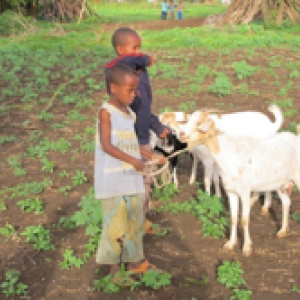
This report was published on behalf of UK MPs who sit on the House of Commons Select Committee on International Development. It was launched to coincide with the international event organised by the UK government as part of its presidency of the G8. The event was held for members of the G8 New Alliance for Food Security and Nutrition and focused on: ‘Nutrition for Growth: Beating hunger through nutrition and science.’
Summary of the report as follows:
There have been two notable ‘shocks’ or ‘spikes’ in global food prices in recent years, peaking in June 2008 and February 2011. The 2008 price spike led to stagnation in the fight against hunger: while the proportion of the global population suffering from hunger had been declining before the price spike, the rate of progress declined when the spike occurred. The price spikes reflect a number of changes, including fundamental changes in supply and demand.
The report argues that biofuel production undermines food security. It points out that UK law requires 5% of total road transport fuel to be derived from biofuels. In addition, EU targets will require 10% of transport energy to be drawn from renewable sources by 2020 (including biofuels). It argues that biofuel production competes with food production for land and so exacerbates food price rises. It recommends that Government revise the 5% target to exclude agriculturally produced biofuels, and that it push for reform of the EU target.
The report also highlights growing global demand for meat which in turn leads to growth in the production of grain-fed livestock, with crops used to feed livestock instead of humans. It recommends a focus on shifting systems towards pasture-fed cattle and away from those that are grain-fed. Although it does not say anything about consuming less meat in the report summary, it does imply this in the body of the report saying: “The rate of increase in global meat consumption is unsustainable: the consequence is a growth in the production of grain-fed livestock, with crops used to feed livestock instead of humans. Clearly this does not mean that the world should stop consuming meat: this would be disproportionate and unrealistic. However, in the longer-term it may be appropriate to focus on sustainable systems such as pasture-fed cattle rather than on grain-fed livestock, with meat promoted as an occasional product rather than an everyday staple.” Note: this is the point that the UK media picked up on either in fairly neutral (the Guardian) or perjorative terms: (eg. Daily Mail). Interestingly, the Daily Mail quotes incensed farmers who say that rearing meat on land unsuited to other purposes is a resource efficient use of land and that the MPs’ report is therefore “dangerous” – but grass fed production systems are exactly the sort that the report is actually endorsing…).
The report goes on to say that as much as 30% of food produced globally is wasted. It recommends that the Government set targets for food waste reduction for producers and retailers and that it introduces sanctions for failure to meet the targets.
The report highlights the need to improve access to contraception and to maintain the focus on women’s reproductive rights. It also says that food supply must be increased and this also translates into increased donor funding for agriculture. Smallholders have a key role to play in food security. DFID should devote a greater proportion of its budget on supporting agricultural extension particularly to smallholders and to support the formation of farmer organisations and associated organisations to enable smallholders to engage with large corporations.
The report also argues for increased focus on greater governance around land acquisition and tenure, investment in roads and other infrastructure and ongoing focus on climate adaptation. To address price volatility there may be a case for judicious use of stocks to reduce food price volatility and for social protection measures. Finally it recommends that DFID launch additional bilateral nutrition programmes, with a particular focus on nutrition during pregnancy and early years.
The citation is as follows: HOC (2013). House of Commons International Development Committee Global Food Security First Report of Session 2013–14, HC 176
You can download the report here.







Post a new comment »